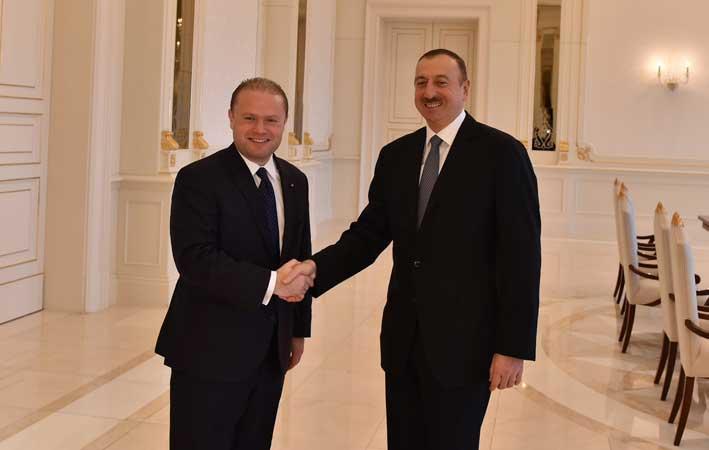GUEST POST/Baku, Panama, politicians and the murky world of money-laundering
Posted by Ms BShorta:
The State Oil Company of Azerbaijan (SOCAR) is in the pockets of Azerbaijani President Ilham Aliyev. His family makes free use of two luxury yachts worth about $60 million that are owned by SOCAR. The Aliyevs also used SOCAR to register their US$25 million London mansion. SOCAR couldn’t be more accommodating to them.
Azerbaijan’s parliament severely restricts public access to corporate registration and ownership in the country. The same parliament also voted to give the President and First Lady lifetime immunity from criminal prosecution.
According to the constitution of Azerbaijan, the president cannot enter into economic activities, but through his family and close relatives he has a web of inter-knitted businesses, mostly in Panama.
Working through 11 off-shore companies in Panama, they have set up branches in Azerbaijan, basically controlling most of the country’s highly profitable companies whose tentacles spread around the world, including Malta where SOCAR’s web first set foot in 2007, beguiled by the island’s tax regime.
However, when Maltese businessmen started dabbling in Azerbaijan’s oil services, the Malta cover could no longer serve the cherished secrecy.
With Panama’s and Azerbaijan’s corporate laws promoting secrecy, a double insularity for the President’s family was assured from the prying eyes of the international press and Europe’s one and only legendary Inland Revenue Department that allows successive (European) prime ministers to accept foreign gifts from other world leaders without declaring them on their income tax forms. The gifts only surface, if they do, upon their death as part of their estate.
An example of how the Azerbaijani regime takes foreign politicians to bed in the grab for their respective countries’ resources is the gold mine in Azerbaijan bought under a deal which originated from Panama offshore companies. Two asset-concealing structures, for money-laundering purposes, were also set up in Panama, by the foreign “investors”, one of them a stooge and the other a politician of international fame. The kickback was planned as a Panama to Panama to Panama (i.e., three Panama-based corporations) deal, beyond the reach of the Western press. So the kickback went to the stooge (i.e., the second party) who was meant to sit on it for a long time to protect the other’s (i.e., the third party) international reputation from any immediate fallout in case of a smoking gun unearthed by the press.
Sometime later, when it was clear that the press hadn’t caught wind of it, the balance would be transferred from the stooge’s kitty to his protégé’s and his family members as beneficiaries since the lion’s share of the money was meant for the third party and his family all along.
By then, it would be even more difficult to go back and trace where it all originated and who did what to whom in the transactions. History would have moved on and certain facets of the story would no longer be of interest.
But in the meantime, the politician, while still in power, would try to convince his government to give another tax amnesty on the repatriation of assets, which in certain countries happens once every few years. This would provide a quick release of the money sitting in Panama, much to the politician’s relief even if he would now have to invest it at 1%.

Joseph Muscat with Ilham Aliyev, ruler of Azerbaijan, in December 2014
